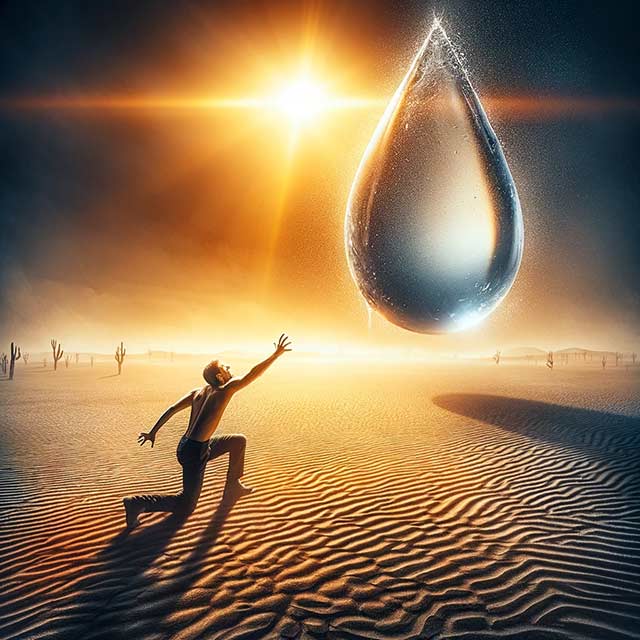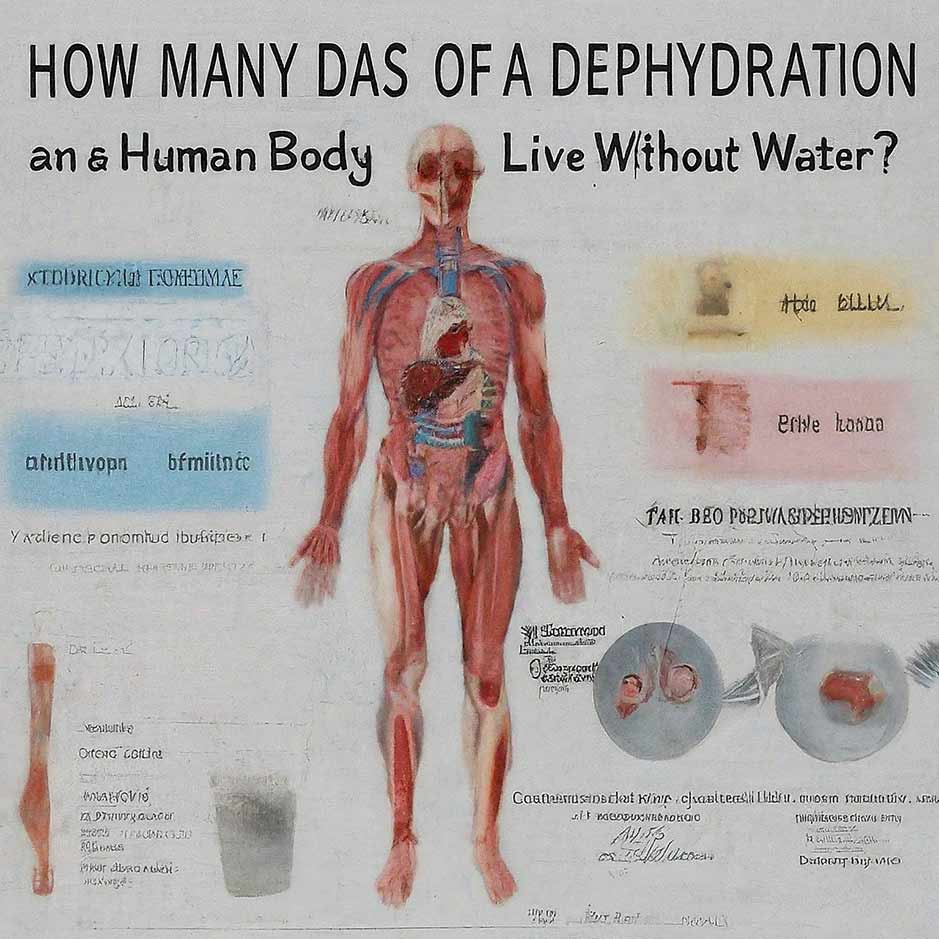Table of Contents
Overview of Human Survival Without Water
This information in the article “How Many Days A Human Live Without Water” is very important. Human survival in the absence of water is a very important aspect when it comes to understanding the limits in human endurance. Water is essential for various body functions, including temperature regulation, proper nutrient flow, and elimination of waste. Deprivation of the average supply of water to the body may easily lead to the human body’s drying up for a variety of reasons, most notably dehydration, as well as a variety of health problems.
Dehydration is the cause of an imbalance brought about by the body’s loss of more fluids than its intake. Its extremes can be very detrimental, as without it the body is incapable of even the most basic of tasks, such as swallowing. The symptoms would include a dry mouth, fatigue, dizziness, and less urine. One should understand how dehydration impacts on the human body for the necessity of understanding that in order to remain healthy, people must drink water.
Signs of Dehydration in the Human Body
Dehydration is the condition when the body expels more liquid than it receives. It can result in dryness of the mouth, a headache, and muscle cramps. It is most commonly demonstrated by thirst, dark or yellow coloration of urine, and fatigue, which is the primary indication that the body requires more water for its proper functionality.
In serious cases, dehydration can lead to dizziness, a rapid heartbeat, and confusion. It can cause some severe complications, including the formation of kidney stones and other heat-related illnesses. An individual should be able to spot the signs of dehydration at an early stage so that the body is rehydrated as soon as possible.
Importance of Water in Human Health
Water is essential for the human body to perform ideally. In ordinary circumstances, there is roughly 60% water in our bodies, demonstrating its roles in our bodies. Water not only regulates the body’s temperature, but it also helps in the digestion and absorption of nutrients, as well as the excretion of waste. Hydration of the body lubricates the joints and moisturizes the internal body parts, while at the same time nutrients and oxygen are conveyed to the entire body tissue by the bloodstream.
Apart from physical health, water proves to present quite an impact on mental and emotional health. The fall in the cognitive function, mood swings, and less concentration is eminent if dehydration happens. Therefore, proper hydration of the body makes it quite important for better mental awakening, improvement of focus, and generally the performance of the brain. Being properly hydrated also reduces the state of fatigue and increases the feeling of being more energized generally, thus increasing well-being.

Performance in Physical Activities
Dehydration significantly reduces physical performance. In case water becomes limited in the body, it will be unable to maintain the temperature of the body, thus exhaustion increases and endurance lowers. The ability of the body to transport nutrients and oxygen to the muscle is also lowered by dehydration, thus reducing the strength of the muscles and coordination.
Dehydration in the brain can lead to poor functioning of the brain, and a person can even lose judgment or coordination. This can be quite dangerous in high-intensity physical activities, when a person is required to make split-second judgments and clear thinking. Therefore, avoiding dehydration and maintaining optimal physical performance should be a top priority.
Also read: Why We Don’t Give Water To Newborn Baby?
Factors Affecting How Many Days A Human Live Without Water
These are the few main factors that dictate how long a human can live without water. An important factor is the physical activities one undertakes, for people in high temperatures will deplete their water sooner. The environmental conditions are also important to the length of time a human will take without water. Hot temperatures or dry climates may result in more sweating and dehydration and will therefore restrict the amount of time for survival.
Secondly, age and the general health condition of the person are some of the factors that determine how long a person can survive without water. Infants, small children, and the elderly are more susceptible to dehydration and can’t live as long through the number of days that healthy adults can. Health problems such as diabetes and kidney diseases will also interfere with the ability to live for an extended period without water.
Conservation Practices of Water in Emergencies
There are certain emergency situations in which the flow of water into a given area is greatly reduced, making the practice of some water conservation strategies very necessary. For example, the use of storing rainwater in containers for a later usage is an appropriate approach that would avail water to an individual later in time. The citizens should be given water purification tablets or filtration devices, which can make existing sources of water safe for consumption. One should also be aware of what water to use; that is, reducing shower time or recycling water for various chores, which will make the water available to them last.
There is also a great way to save water during emergencies and to prevent wastage in daily activities. For instance, people may think about the appropriate repair of leaks in the plumbing system, while turning off all the taps tightly, which will save water from dripping. It is also possible to stretch the available water supplies by simply establishing priorities on what water could be used mainly for drinking, hygiene, and cooking purposes. When the conservation of water in a pro-active approach is adopted, people will be better placed to handle such situations in water scarcity



